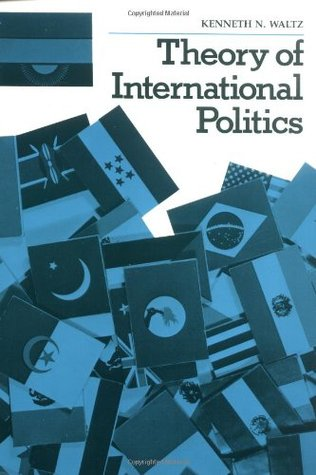What made Kenneth Waltz a "Realist" and why was his form of realism "Neo"?
Time to #KeepRealismReal
[THREAD]
Time to #KeepRealismReal
[THREAD]

As pointed out in a previous #KeepRealismReal thread, Waltz key "realist" text, Theory of International Politics (TIP), doesn't even contain the word "realism", let alone "neorealism"
https://twitter.com/ProfPaulPoast/status/1396077594785861637
The main reason TIP is viewed as a realist text is because a goal of the book is to make sense of "the balance of power".
Why does that make it a "realist" text? Let's take a moment and go back to Hans Morgenthau
Why does that make it a "realist" text? Let's take a moment and go back to Hans Morgenthau

A core idea in Morgenthau's key book "Politics Among Nations" (Chapter 11) is that, absent a world government, balances of power necessarily arise. 

Balance of Power: How do they work? Morgenthau doesn't say -- only that they come about 🤷♂️
Subsequent scholars tried to fix Morgenthau's omission, such as another @UChicago prof Morton Kaplan 

In his key book, "System and Process in International Politics", Kaplan maintained that the Balance of Power was conditional -- it required states to follow "the rules" 

Kaplan emphasized that nothing compelled states to follow these rules -- only a world government could do that 

This brings us back to Waltz & TIP.
He wasn't happy AT ALL with how either Morgenthau or Kaplan described the balance of power.
He wasn't happy AT ALL with how either Morgenthau or Kaplan described the balance of power.
Waltz felt that for the Balance of Power to be a "theory of international politics" (or for anything to be a theory of international politics) it must NOT be contingent on the choices of states. 

Instead, a theory of international politics should focus on the system: regardless of what states choose or want to do, the system will eventually come back to a particular outcome.
That outcome? A balance of power
That outcome? A balance of power

Waltz does elaborate on these assumptions, but he's very open regarding what motivates states (could be just survival; could be domination; but doesn't really matter) 

In a nutshell, Waltz writes that "Fear of such unwanted consequences (i.e. coercion; conquering; suffering) stimulates states to behave in ways that tend toward the creation of balances of power."
That the balance of power persists regardless of what states want or do means Waltz, unlike Kaplan (or Morgenthau), is agnostic about the motivations of states. States don't need to be rational or operate according to common sense (though they do need a healthy dose of "fear")
@Simon_the_Pratt and @Curseofthe9th, in their @EuroJournIR piece, elaborate on how Waltz doesn't require "rational state actors" for his theory
journals.sagepub.com/doi/abs/10.117…
journals.sagepub.com/doi/abs/10.117…
One can view Waltz's claim regarding BoP as simply an elaborate way of saying that no world sovereign can emerge. @dhnexon and @segoddard make this point in their @EuroJournIR piece
journals.sagepub.com/doi/pdf/10.117…
journals.sagepub.com/doi/pdf/10.117…
According to their reading of Waltz, balances can happen even if no state pursues an explicit "balance of power" foreign policy (e.g. see the foreign policy of the British during the 18th, 19th, and early 20th century) 

How Nexon and Goddard read Waltz is reasonable, especially given what Waltz says about World Government in TIP:
World Government -> World Civil War
World Government -> World Civil War

In sum,
- Waltz was a realist because fear meant international politics has a tendency to produce balances of power.
- Waltz's realism was "neo" because, unlike Morgenthau and Kaplan, he didn't care what motivated states (beyond fear).
[END]
- Waltz was a realist because fear meant international politics has a tendency to produce balances of power.
- Waltz's realism was "neo" because, unlike Morgenthau and Kaplan, he didn't care what motivated states (beyond fear).
[END]
Addendum: For those keeping track of the three questions of realism I introduced in an earlier #KeepRealismReal thread , Waltz would answer "no" to Question 1, answer "the system" to Question 2, and "yes" to Question 3.
https://twitter.com/ProfPaulPoast/status/1391016651244572673
• • •
Missing some Tweet in this thread? You can try to
force a refresh















